Displaying items by tag: Toscotec
The Changing face of Tissue in China By Marco Dalle Piagge, general manager Toscotec Asia & Pacific
With mill closures threatened throughout China to reduce pollution, how is China's tissue industry placed to meet growing demand?
There are two faces to the Chinese paper industry. It will come as no great surprise that around half of the world's new tissue machines in 2010/11 were installed in China.
At Toscotec we have seen our installed base in China grow considerably. The state-of-the-art new machines which are announced in the media on a regular basis give an impression of an industry which is leading the world in its use of technology.
In many respects this is true. There remains however, a wide scattering of older, more polluting paper technology around the country, which the Chinese Government is
keen to retire as soon as possible. In fact an announcement at the end of last year indicated that these closures would take place at a faster pace than originally anticipated: The Chinese Ministry of Industry and Information Technology (MIIT) pinpointed 599 pulp and paper companies operating units which had to be closed by the end of last year.
The bulk of these machines are producing brown paper or printings/writings, but the tissue industry cannot go untouched. As far as capacity is concerned, however, the new capacity slated to come on stream should cover any loss of capacity as well as increased demand.
But the MIIT's initiative can only hasten the process of reinvention which has taken place in the Chinese tissue industry.

The strong investment push by the main tissue players in China in the last two years combined with the stricter environmental controls leaves those on the second rung of the ladder with a challenge.
If they do not invest, they will either fail to meet environmental standards and be closed down, or risk being left behind as they cease to be competitive. The smallest producers really will struggle. They simply cannot compete in terms of quality and their processes, usually based on straw, bagasse or bamboo, are just out of line with where the Chinese tissue industry is going, not to mention environmental legislation.
With this in mind, we need to realise that not all new machines in China are "new" capacity, but outdated lines, even if they are not at the same location.
What is clear is that Chinese consumers have got the taste for tissue and the country is now well on the way to having the world's most modern tissue machine "fleet". It is noticeable, however, that the very biggest, fastest machines are no longer the only thing on the menu. Producers are increasingly looking at technology which, while matching the sophistication of the biggest lines, is designed for a more modest output. Such lines, in addition to representing a smaller investment, might be more suitable to supply just the local population, without having to transport the tissue at great expense to other locations to use up the capacity. Energy consumption by the tissue machine is also an increasingly relevant consideration when tissue makers make purchasing decisions, and this is something on which we at Toscotec have focused particular attention.
Encouraged to locate inland
Another change to watch for is the location of new tissue projects. Of course, unlike Europe, there is considerable potential for Greenfield projects in this country, but they have tended to cluster around the main cities on the coast. In an attempt to slow down the recent tendency of the Chinese to migrate to coastal cities where the standard of living is higher, new mill projects
are actively being encouraged inland in areas such as Chongqing and Sichuan. As these new mills bring quality tissue to new areas, so the market for tissue in China will gain even more momentum.

Fibre is of course an important practical consideration. The fast, wide new machines being installed in China consume virgin fibre. The infrastructure for sourcing good quality recycled fibre does not yet exist in China, and suitable stock preparation equipment to process it
has not been installed either. None of the big projects in the past two years has involved deinking. This situation clearly favours coastal mills, with their easier access to imported virgin fibre. The transport infrastructure is improving, however, which will strengthen the competitive
case for inland mills, and reduce the fibre division that has existed, whereby coastal mills have produced high quality tissue from virgin fibre, while inland mills have only produced an inferior product from straw, bamboo or bagasse.
The supply of fibre is, at present, plentiful. The pulp market is relatively soft, and large pulp mill projects are due to come on stream in the region in the not-to-distant future. There will always be a softwood pulp requirement for tissue, and local pulp projects will inevitably focus on hardwood pulp. But supply of softwood pulp has proved reliable, and the exchange rate with the Euro favours Chinese buyers at present.
The gas factor
There is another factor which divides the country in terms of tissue production. Gas is not on tap throughout China. Guangdong for example, has virtually none. Most tissue machines in the 30 to 50 tpd category in China rely on coal to generate steam. Mills on sites without access to gas have to consider their technology very carefully if they plan to step up production. Coal cannot
produce steam at as high a rate as gas, so speeds close to 1,700 mpm in rather than 2,000 mpm are realistic. At Toscotec we believe, however, that with world-class runnability this can still put a mill in a strong position, by significantly reducing production costs. Our message is that with the right technology, (we would of course advocate our energy-saving steel yankee), you can still
be competitive with coal.
The investment in state-of-the-art tissue lines means that the evolution of quality in China has been rapid. Within a short time, consumers have come to expect a quality of virgin-fibre tissue which is a match for what is sold Europe, and often better.
An everyday item
China has gained a reputation as a highly competitive place to make products. It is worth remembering, however, that this country pays energy and raw material prices at the same level as anywhere else - often more - and the main competitive advantage is the low cost of manpower. But tissue is capital-intensive to produce and as living standards improve and skills start to attract more of a premium, wage pressure will be upwards anyway. As wage cost pressures increase, producers will be ever more conscious of other burdens on company finances, such as energy. China is undoubtedly one of the most exciting places in the world to be involved in the tissue business, but as market conditions and demands evolve, the subtleties such as energy consumption will rise up the agenda, as sheer volume ceases to be the only answer.
source: http://www.toscotec.com/
Toscotec to supply eight new tissue machines to Vinda
The Italian company Toscotec has been awarded an order to supply eight new tissue machines to Vinda, a branded seller and leading manufacturer of tissue paper products in China and Hong Kong.
The Toscotec's scope for each of the new lines, includes MODULO Plus ES crescent former tissue machine with single-layer headbox, double press configuration, Steel Yankee Dryer (TT SYD 12FT), steam & condensate system, control and machine drives systems. Mills services are also included in the scope.
Machine speed will be up to 1300 mpm with a net trim width of 2700 mm. All the machines will come on stream between 3rd quarter of 2012 and 1st half of 2013.
Toscotec machines has been studied and designed in order to fulfill the requirements of fast growing markets. The new concept of the Energy Savings lines maximizes the contribution of the Steel Yankee Dryer to the drying process and guarantees the highest evaporation at the lowest energy consumption and carbon footprint.
Since 2009, with the establishment of its associate Toscotec Asia & Pacific, the Italian supplier has considerably increased its presence in the region. As further step of this strategic plan, part of the supply for these Vinda machines will come from Toscotec Asia & Pacific new manufacturing plant based in Zibo - Zhangdian District, Shandong.
The Vinda Group's principal products include toilet roll, pocket tissue paper, facial tissue paper, table napkins and wet wipes etc. Vinda commands strong brand recognition and adopts a successful multi-brand branding strategy by launching its primary brand "Vinda" and a number of secondary brands. It also has two animation-licensed series: "Pleasant Goat and Big Big Wolf" and "Kung Fu Panda".
As at 31th December 2011, Vinda has seven production bases in the PRC with a total annual production capacity of 470,000 tons and is actively developing its personal care products business. (http://www.vindapaper.com/en/home.asp)
New Toscotec Tissue Line Started up in China
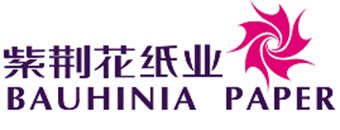 Toscotec has started up on 16 January, according to the project time schedule, a new Ahead 1.5M tissue line for Chinese Ningxia Bauhinia Paper Co.Ltd, located in Yinchuan.Ningxia Bauhinia Paper Co. Ltd. was founded in 1989 and is part of Ningxia Zijinghua Group. The company started as a township enterprise and with this new successful investment, has increased its annual production capacity up to 100.000 tpy with 2000 employees and ranks the Top 10 tissue producers in China.
Toscotec has started up on 16 January, according to the project time schedule, a new Ahead 1.5M tissue line for Chinese Ningxia Bauhinia Paper Co.Ltd, located in Yinchuan.Ningxia Bauhinia Paper Co. Ltd. was founded in 1989 and is part of Ningxia Zijinghua Group. The company started as a township enterprise and with this new successful investment, has increased its annual production capacity up to 100.000 tpy with 2000 employees and ranks the Top 10 tissue producers in China.
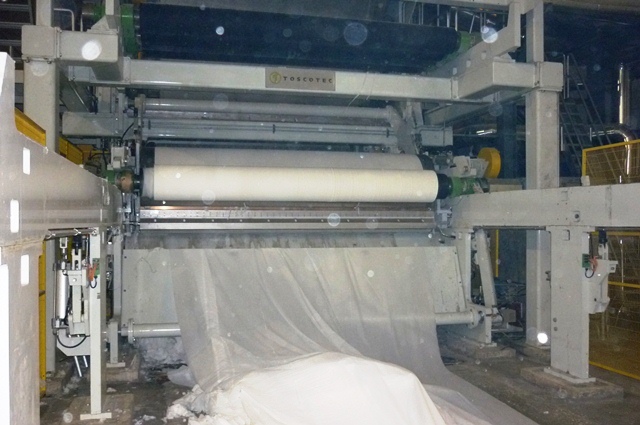 Toscotec supply included Ahead 1.5M crescent former tissue machine with single-layer headbox and double press configuration, 15' Steel Yankee Dryer (TT SYD 15FT) a Milltech steam heated hood, machine auxiliaries, approach flow system, electrification and control system. Machine speed is up to 1500 mpm with a net trim width of 3450 mm.
Toscotec supply included Ahead 1.5M crescent former tissue machine with single-layer headbox and double press configuration, 15' Steel Yankee Dryer (TT SYD 15FT) a Milltech steam heated hood, machine auxiliaries, approach flow system, electrification and control system. Machine speed is up to 1500 mpm with a net trim width of 3450 mm.
The start up curve was very smooth and the machine already reached a stable speed of 1300 mpm few days after the start up with a 13 gsm product despite the outside very difficult weather condition with -20°C temperature.
The strong cooperation between customer and Toscotec teams made possible to start the production by mid of January before the Chinese new year and the Italian supplier is now performing the normal ‘baby-sitting' activities on-site through the personnel of its Toscotec Asia & Pacific team.
Thanks also to the recent acquisition of Milltech, Toscotec can now provide advanced energy saving solution adding a lot of value to the Chinese projects where lack of natural gas is a constant. Furthermore the fast growing Toscotec Asia & Pacific experienced team can provide qualified services to the demanding Chinese market.
These successful factors allowed Toscotec to get 15 new machine orders in the Mainland China in the last three years.
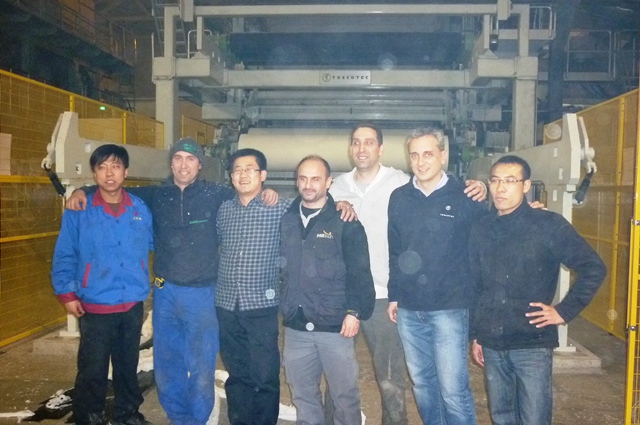
Russian Syassky Pulp & Paper Mill started up a new Toscotec line
Syassky Pulp and Paper Mill, based in Syasstroy St. Petersburg region - Russia, on January 27 has started up a new Toscotec Ahead 1.5M tissue line.
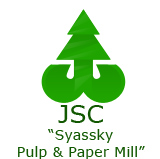 Syassky PPM, one of the oldest and important pulp and paper mill in the URSS period, was founded in 1928, with the unique aim to cover the needs of the domestic market. Actually, Syassky Pulp and Paper Mill is one of the most modern enterprises of the north west Russian region and the only integrated tissue producer in this area having in line pulp mill, tissue production (PM2, PM3 and PM5) and converting & packaging facilities.
Syassky PPM, one of the oldest and important pulp and paper mill in the URSS period, was founded in 1928, with the unique aim to cover the needs of the domestic market. Actually, Syassky Pulp and Paper Mill is one of the most modern enterprises of the north west Russian region and the only integrated tissue producer in this area having in line pulp mill, tissue production (PM2, PM3 and PM5) and converting & packaging facilities.
The Company has been reorganized as joint stock company with the result to be able to satisfy the growing demand for domestic but also for AFH export markets.In the last two years Syassky PPM put in progress a huge investment process that resulted in the start up of new converting lines, packaging lines and of a new Toscotec rewinder TT WIND-H.
The new Toscotec tissue line that has replaced the existing PM2 housed in the same original building, continues this strong investment process and will guarantee a leading position for the company in the growing Russian market.
The main tissue brand produced by Syassky is Myagky Znak that in 2011, according to AC Nielsen Market Research, has reached a 21% market share in Moscow and St.Petersburg regions.
The Ahead 1.5M crescent former machine features a single layer headbox, single press configuration TT SPR 1050, a 3660 mm diameter Steel Yankee Dryer TT SYD 12FT and a renewed reel TT REEL-P.
The Toscotec scope of supply included also upgrading of the existing stock preparation plant, a new approach flow system, gas heated hood, steam & condensate system as well as electrification & control system. A complete engineering, erection supervision, commissioning, training and start up assistance package was provided by Toscotec.
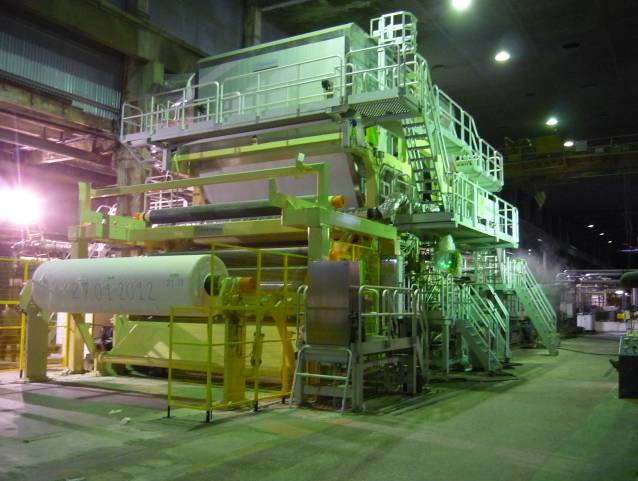
Machine speed is up to 1400 mpm with a trim width of 4200 mm, for a daily production of 125 tons.
Thanks to its Crescent Former configuration and to the high level of technology the machine is extremely flexible, compact and capable of producing high quality tissue from virgin pulp (dry & slush) with a reduced energy consumption.
The project has started with the dismantling of the old paper machine and with the civil works to get the necessary new foundations in the building. Thanks to the strong cooperation between Toscotec and Syassky team the challenging project has been successfully completed in less than one year from the contract signature.
This new successful installation strengths the Toscotec position as one of the leading tissue machinery supplier capable to provide full range of products and services worldwide. The Italian company is capable to manage projects from green field turnkey solutions to upgrading of the existing mills.
Toscotec completes the SIPAT S.A. tissue machines rebuilds in Meknes Morocco
Toscotec has completed and started up in cooperation with Sipat S.A. the major rebuild of the two machines (#1 and #2 ) housed in the company facility in Meknes Morocco.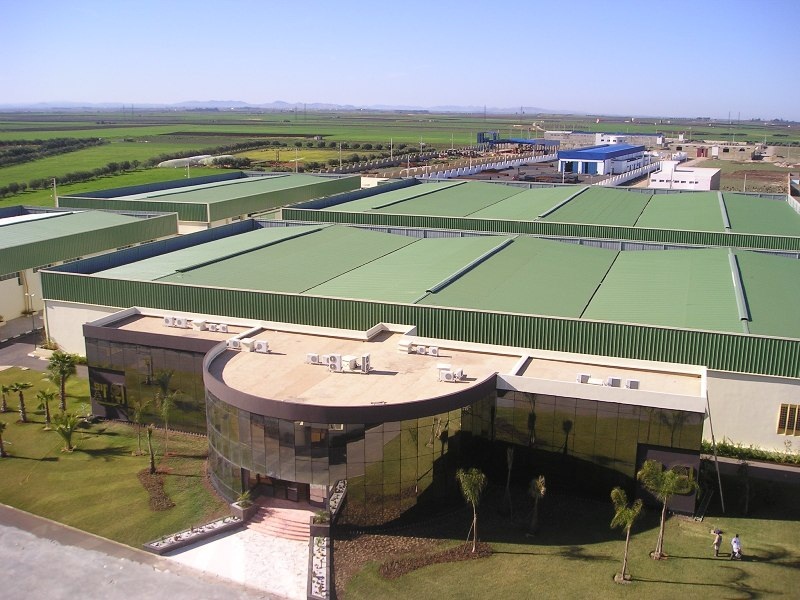 Sipat S.A. - Societé Industrielle Des Papiers "Tissues" - born in 1978, is owned by the El Kendouci family. With a production capacity of 16.000 tpy, the company can satisfy the request of the Moroccan market, capable of absorbing 70% of SIPAT's capacity, and exports the rest to Senegal and Tunisia. The production comprises in first position facial tissue, second toilet rolls, then bronze medal for table napkins, and last but growing are kitchen towels.
Sipat S.A. - Societé Industrielle Des Papiers "Tissues" - born in 1978, is owned by the El Kendouci family. With a production capacity of 16.000 tpy, the company can satisfy the request of the Moroccan market, capable of absorbing 70% of SIPAT's capacity, and exports the rest to Senegal and Tunisia. The production comprises in first position facial tissue, second toilet rolls, then bronze medal for table napkins, and last but growing are kitchen towels.
The PM1 rebuild affected the dry end area of the production line with the installation of a new hood and new steam & condensate system, increasing the machine drying capacity and so the production of higher BW grades.
PM2 rebuild aim instead was to increase both the paper quality and the production speed with the following interventions: approach flow and headbox modification, the supply of a new steel dryer TT SYD 2500MM with new steam & condensate system, steam hood rebuild and upgrade of the vacuum system.
The rebuilds have been completed according to the time schedule and both of them have been carried out by Toscotec on a turn key basis.
With these important rebuilds Sipat S.A. can now optimise the production cycle, both in terms of production flexibility and in energy costs, and improve paper quality.
